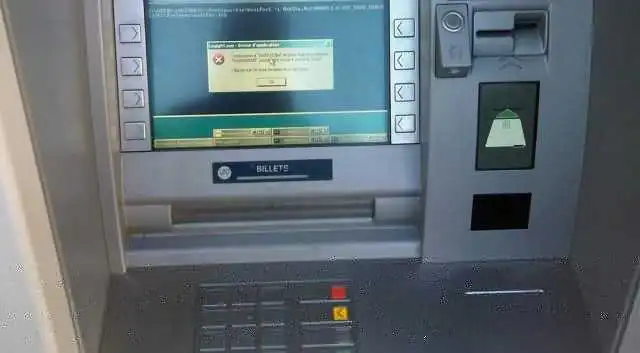
• NIBSS sees more vulnerability from ATM, mobile channels
• CBN charges on improved securityALTHOUGH there was significant fall in the value of financial frauds recorded in 2015,
Nigerians still lost about N2.25 billion to activities of fraudsters during the year.
The Nigerian Interbank Settlement System (NIBSS) disclosed that in 2014, fraudsters made 1,461 attempts to steal N7.8 billion, but succeeded in stealing N6.2 billion in the year.
This is even as the Central Bank of Nigeria (CBN) has called for more vigilance from banks and the customers.
Speaking at the Cybersecurity and Banking Fraud Summit 2016, organized by MAXUT Consulting in collaboration with Vasco, an online authentication firm from Europe, yesterday, in Lagos, NIBSS Head, Industry and Security Service, Femi Fadairo, disclosed that though there were 10, 743 attempts to steal N4.3 billion, only about N2.25 billion was eventually stolen from Nigerians by fraudsters last year.
Fadairo noted that between 2014 and 2015, the financial sector recorded 63.7 per cent reduction in actual fraud losses. He stated more fraud cases was reported by the banks in 2015 compared to 2014.
He informed that the Automated Teller Machine (ATM) was more vulnerable to frauds in 2015 and would even be the most targeted platform in 2016.
Fadairo stated the fraud volume through ATM in 2015 was 5,133, valued at N355, 892, 201.30; Point of Sales (PoS) had 1,853 volume, valued at N63, 533, 467.48; Internet Banking volume was 727 valued at N263, 995, 257.70; Web volume was 1,463 valued N173, 472, 360.60; Cheque in terms of volume had 40 valued at N167, 413, 696, among others.
As stated by him, in 2013 and 2014, the Internet Banking, Web and ATM transactions happened to be the top three channels mostly reported. However, he disclosed that in 2015, ATM, PoS and Web took over the top three channels mostly reported.
“The 2015 report introduced another dimension to the fraud scheme in Nigeria. It is becoming more obvious that card related transactions are becoming the safe haven for the fraudsters. Proceeds from unauthorized transfers are easily consumed via ATM, POS and Web”, he stated.
Fadairo, who stated that the reduction in fraud in 2015 was achieved because of the several CBN interventions introduced including the Bank Verification Number (BVN); Second Factor Authentication, introduced in 2014 and the Fraud Desk in banks, which started on June 17, 2015, stressed that Phishing activities, which is common in Nigeria, would increase.
Phishing is the attempt to acquire sensitive information such as usernames, passwords, and credit card details (and sometimes, indirectly, money), often for malicious reasons, by masquerading as a trustworthy entity in an electronic communication.
The NIBSS official informed that in 2015, in terms of foreign transactions, there is a total volume of 11, 293, 396, which resulted into $2.45 billion with ATM having both the highest volume and value.
Lending his voice, the Managing Director of NIBSS, Adebisi Shonubi, who stated fraud would go up in 2016, stressed that there was the need to underwrite risk that cannot be covered.
He pointed out that collaboration has become key if fraud activities must be overcome in the financial sector cum economy.
Representing the Director of Banking and Payment System, Dipo Fatokun, an Assistant Director in the department, Sola Agboola, stated banks and other financial service providers need to understand that today’s approach for cyber-security in particular, must be based on detection of attacks and preventing criminals from leaving with key assets. “In our environment, we expect more and more things to have access to the Internet and to financial services accounts and credentials within the concept of the Internet of Things, thus, seeing a shift from ‘Bring Your Own Device (BYOD) to ‘Bring Your Own Identity”.
Guardian